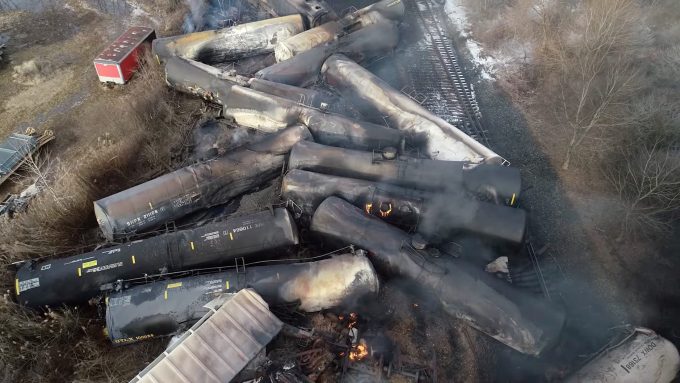Intermodal ups and downs in a mixed first half for North American railroads
North America’s intermodal operators experienced something of a mixed bag over the three months to ...

It sounds like a script from a TV melodrama. A Norfolk Southern (NS) train derailed around 6.45 am yesterday in Alabama – hours before NS CEO and president Alan Shaw was due to appear before the US Senate to testify about the derailment of one of the company’s trains in East Palestine, Ohio last month.
That incident sparked a fire and led to the evacuation of 4,700 residents, as some of the derailed cars were carrying vinyl chloride, a flammable and ...
Maersk Air Cargo sees volumes fall as it aims for 'margin in favour of revenue'
Keep our news independent, by supporting The Loadstar
Container spot rates diverge: to Europe still falling, but firmer to the US
Hapag-Lloyd won't take bookings if port congestion leaves cargo stranded
Ecommerce likely the front-runner in resurge of transpacific trade after deal
Airfreight players eye new routes as demand on the transpacific nosedives
China-US trade tariff pause could drive a rebound for transpacific rates
Service chaos from trade ban with India a problem for Pakistan shippers
Volume surge and an early peak season? 'Don't celebrate too soon,' warning
Airfreight rates ex-China 'loss-making', but hopes of a trade deal stay high
Indian coastal freight attracts major carriers, but regional tension disrupts
Serious threat to jobs in US logistics as tariffs cause economic 'stagflation'
APMM floats along on 'solid' Q1 profitability in Ocean, well prepared for choppy water
White House u-turns see freighters flying but keep logistics players on their toes
Carriers impose 'emergency operation' surcharges on Pakistan cargo
MSC in terminal switch as Nhava Sheva gets strong start to new fiscal year

Comment on this article